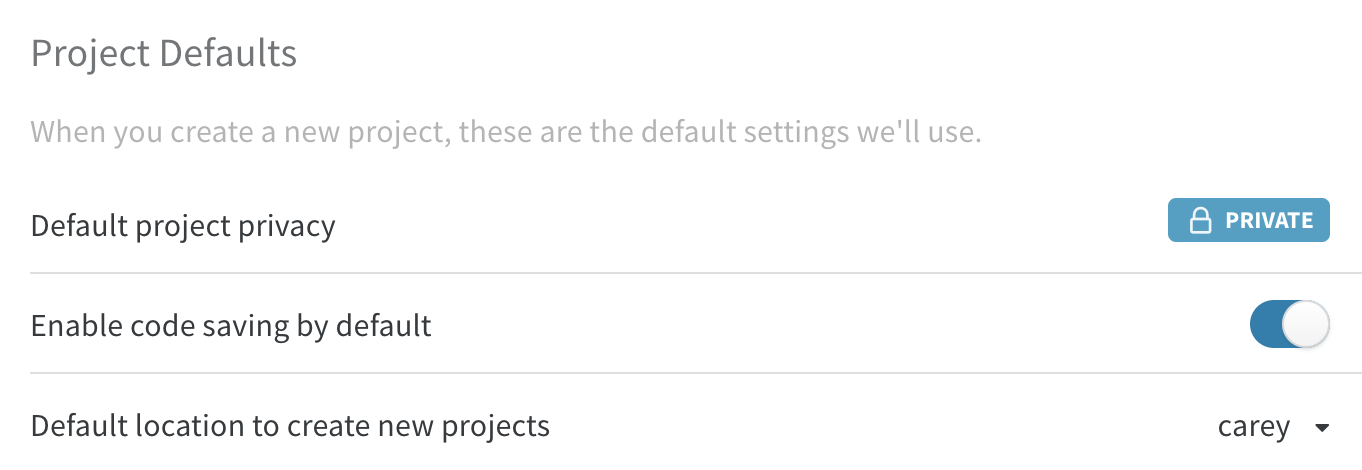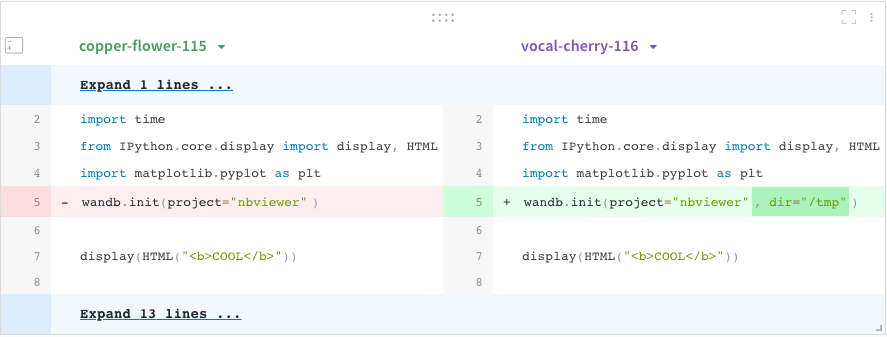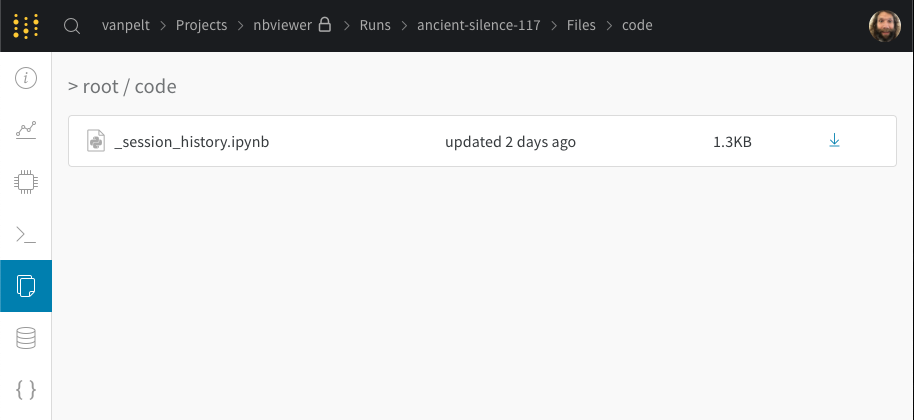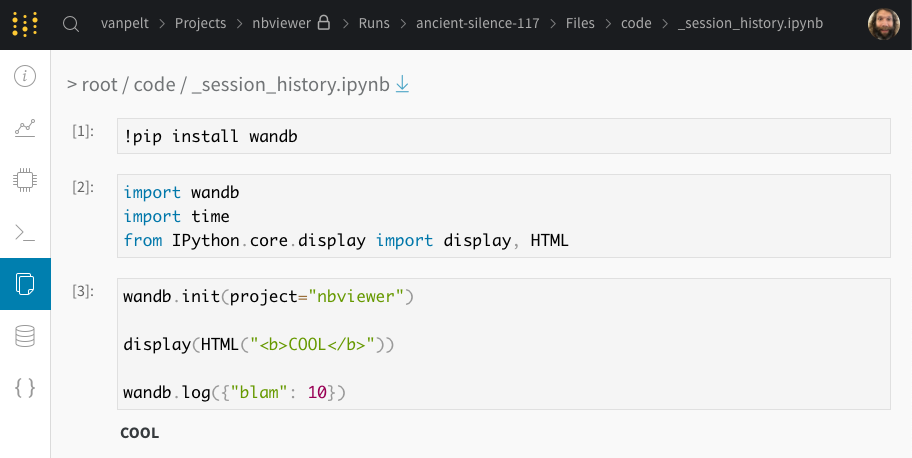Code Saving
By default, we only save the latest git commit hash. You can turn on more code features to compare the code between your experiments dynamically in the UI.
Starting with wandb version 0.8.28, we can save the code from your main training file where you call wandb.init(). This will get sync'd to the dashboard and show up in a tab on the run page, as well as the Code Comparer panel. Go to your settings page to enable code saving by default.

Save Library Code
When code saving is enabled, wandb will save the code from the file that called wandb.init(). To save additional library code, you have two options:
- Call
wandb.run.log_code(".")after callingwandb.init() - Pass a settings object to
wandb.initwith code_dir set:wandb.init(settings=wandb.Settings(code_dir="."))
This will capture all python source code files in the current directory and all subdirectories as an artifact. For more control over the types and locations of source code files that are saved, please see the reference docs.
Code Comparer
Click the + button in your workspace or report to add a new panel, and select the Code Comparer. Diff any two experiments in your project and see exactly which lines of code changed. Here’s an example:

Jupyter Session History
Starting with wandb version 0.8.34, our library does Jupyter session saving. When you call wandb.init() inside of Jupyter, we add a hook to automatically save a Jupyter notebook containing the history of code executed in your current session. You can find this session history in a runs file browser under the code directory:

Clicking on this file will display the cells that were executed in your session along with any outputs created by calling iPython’s display method. This enables you to see exactly what code was run within Jupyter in a given run. When possible we also save the most recent version of the notebook which you would find in the code directory as well.

Jupyter diffing
One last bonus feature is the ability to diff notebooks. Instead of showing the raw JSON in our Code Comparer panel, we extract each cell and display any lines that changed. We have some exciting features planned for integrating Jupyter deeper in our platform.